- Home
- Clive Barker
Books of Blood Vol 5 Page 2
Books of Blood Vol 5 Read online
Page 2
'I don't think I've got time.'
'Just a cup,' Anne-Marie said, already up and unplugging the electric kettle to take it across for a re-fill. As she was about to turn on the tap she saw something on the draining board, and drove her thumb down, grinding it out. 'Got you, you bugger,' she said, then turned to Helen: 'We got these bloody ants.'
'Ants?'
'Whole estate's infected. From Egypt, they are: pharoah ants, they're called. Little brown sods. They breed in the central heating ducts, you see; that way they get into all the flats. Place is plagued with them.'
This unlikely exoticism (ants from Egypt?) struck Helen as comical, but she said nothing. Anne-Marie was staring out of the kitchen window and into the back-yard.
'You should tell them - ' she said, though Helen wasn't certain whom she was being instructed to tell, 'tell them that ordinary people can't even walk the streets any longer - 'Is it really so bad?' Helen said, frankly tiring of this catalogue of misfortunes.
Anne-Marie turned from the sink and looked at her hard.
We've had murders here,' she said.
'Really?'
'We had one in the summer. An old man he was, from Ruskin. That's just next door. I didn't know him, but he was a friend of the sister of the woman next door. I forget his name.'
'And he was murdered?'
'Cut to ribbons in his own front room. They didn't find him for almost a week.'
'What about his neighbours? Didn't they notice his absence?'
Anne-Marie shrugged, as if the most important pieces of information - the murder and the man's isolation - had been exchanged, and any further enquiries into the problem were irrelevant. But Helen pressed the point.
'Seems strange to me,' she said.
Anne-Marie plugged in the filled kettle. 'Well, it happened,' she replied, unmoved.
'I'm not saying it didn't, I just - '
'His eyes had been taken out,' she said, before Helen could voice any further doubts.
Helen winced. 'No,' she said, under her breath.
'That's the truth,' Anne-Marie said. 'And that wasn't all'd been done to him.' She paused, for effect, then went on: 'You wonder what kind of person's capable of doing things like that, don't you? You wonder.' Helen nodded. She was thinking precisely the same thing.
'Did they ever find the man responsible?'
Anne-Marie snorted her disparagement. 'Police don't give a damn what happens here. They keep off the estate as much as possible. When they do patrol all they do is pick up kids for getting drunk and that. They're afraid, you see. That's why they keep clear.'
'Of this killer?'
'Maybe,' Anne-Marie replied. 'Then: He had a hook.'
'A hook?'
'The man what done it. He had a hook, like Jack the Ripper.'
Helen was no expert on murder, but she felt certain that the Ripper hadn't boasted a hook. It seemed churlish to question the truth of Anne-Marie's story however; though she silently wondered how much of this - the eyes taken out, the body rotting in the flat, the hook - was elaboration. The most scrupulous of reporters was surely tempted to embellish a story once in a while.
Anne-Marie had poured herself another cup of tea, and was about to do the same for her guest.
'No thank you,' Helen said, 'I really should go.'
'You married?' Anne-Marie asked, out of the blue.
'Yes. To a lecturer from the University.'
'What's his name?'
'Trevor.'
Anne-Marie put two heaped spoonfuls of sugar into her cup of tea. 'Will you be coming back?' she asked.
'Yes, I hope to. Later in the week. I want to take some photographs of the pictures in the maisonette across the court.'
'Well, call in.
'I shall. And thank you for your help.'
'That's all right,' Anne-Marie replied. 'You've got to tell somebody, haven't you?'
'The man apparently had a hook instead of a hand.'
Trevor looked up from his plate of tagliatelle con prosciutto.
'Beg your pardon?'
Helen had been at pains to keep her recounting of this story as uncoloured by her own response as she could. She was interested to know what Trevor would make of it, and she knew that if she once signalled her own stance he would instinctively take an opposing view out of plain bloody-mindedness.
'He had a hook,' she repeated, without inflexion.
Trevor put down his fork, and plucked at his nose, sniffing. 'I didn't read anything about this,' he said.
'You don't look at the local press,' Helen returned. 'Neither of us do. Maybe it never made any of the nationals.'
'"Geriatric Murdered By Hook-Handed Maniac"?' Trevor said, savouring the hyperbole. 'I would have thought it very newsworthy. When was all of this supposed to have happened?'
'Sometime last summer. Maybe we were in Ireland.'
'Maybe,' said Trevor, taking up his fork again. Bending to his food, the polished lens of his spectacles reflected only the plate of pasta and chopped ham in front of him, not his eyes.
'Why do you say maybe?' Helen prodded.
'It doesn't sound quite right,' he said. 'In fact it sounds bloody preposterous.'
'You don't believe it?' Helen said.
Trevor looked up from his food, tongue rescuing a speck of tagliatelle from the corner of his mouth. His face had relaxed into that non-committal expression of his - the same face he wore, no doubt, when listening to his students. 'Do you believe it?' he asked Helen. It was a favourite time-gaining device of his, another seminar trick, to question the questioner.
'I'm not certain,' Helen replied, too concerned to find some solid ground in this sea of doubts to waste energy scoring points.
'All right, forget the tale - ' Trevor said, deserting his food for another glass of red wine. ' - What about the teller? Did you trust. her?'
Helen pictured Anne-Marie's earnest expression as she told the story of the old man's murder. 'Yes,' she said. 'Yes; I think I would have known if she'd been lying to me.'
'So why's it so important, anyhow? I mean, whether she's lying or not, what the fuck does it matter?'
It was a reasonable question, if irritatingly put. Why did it matter? Was it that she wanted to have her worst feelings about Spector Street proved false? That such an estate be filthy, be hopeless, be a dump where the undesirable and the disadvantaged were tucked out of public view - all that was a liberal commonplace, and she accepted it as an unpalatable social reality. But the story of the old man's murder and mutilation was something other. An image of violent death that, once with her, refused to part from her company.
She realized, to her chagrin, that this confusion was plain on her face, and that Trevor, watching her across the table, was not a little entertained by it.
'If it bothers you so much,' he said, 'why don't you go back there and ask around, instead of playing believe-in-it-or-not over dinner?'
She couldn't help but rise to his remark. 'I thought you liked guessing games,' she said.
He threw her a sullen look.
'Wrong again.'
The suggestion that she investigate was not a bad one, though doubtless he had ulterior motives for offering it. She viewed Trevor less charitably day by day. What she had once thought in him a fierce commitment to debate she now recognized as mere power-play. He argued, not for the thrill of dialectic, but because he was pathologically competitive. She had seen him, time and again, take up attitudes she knew he did not espouse, simply to spill blood. Nor, more's the pity, was he alone in this sport. Academe was one of the last strongholds of the professional time-waster. On occasion their circle seemed entirely dominated by educated fools, lost in a wasteland of stale rhetoric and hollow commitment.
From one wasteland to another. She returned to Spector Street the following day, armed with a flashgun in addition to her tripod and high-sensitive film. The wind was up today, and it was Arctic, more furious still for being trapped in the maze of passageways and courts. She m
ade her way to number 14, and spent the next hour in its befouled confines, meticulously photographing both the bedroom and living-room walls. She had half expected the impact of the head in the bedroom to be dulled by re-acquaintance; it was not. Though she struggled to capture its scale and detail as best she could, she knew the photographs would be at best a dim echo of its perpetual howl.
Much of its power lay in its context, of course. That such an image might be stumbled upon in surroundings so drab, so conspicuously lacking in mystery, was akin to finding an icon on a rubbish-heap: a gleaming symbol of transcendence from a world of toil and decay into some darker but more tremendous realm. She was painfully aware that the intensity of her response probably defied her articulation. Her vocabulary was analytic, replete with buzz-words and academic terminology, but woefully impoverished when it came to evocation. The photographs, pale as they would be, would, she hoped, at least hint at the potency of this picture, even if they couldn't conjure the way it froze the bowels.
When she emerged from the maisonette the wind was as uncharitable as ever, but the boy waiting outside - the same child as had attended upon her yesterday - was dressed as if for spring weather. He grimaced in his effort to keep the shudders at bay.
'Hello,' Helen said.
'I waited,' the child announced.
Waited?'
'Anne-Marie said you'd come back.'
'I wasn't planning to come until later in the week,' Helen said. 'You might have waited a long time.'
The boy's grimace relaxed a notch. 'It's all right,' he said, 'I've got nothing to do.'
'What about school?'
'Don't like it,' the boy replied, as if unobliged to be educated if it wasn't to his taste.
'I see,' said Helen, and began to walk down the side of the quadrangle. The boy followed. On the patch of grass at the centre of the quadrangle several chairs and two or three dead saplings had been piled.
'What's this?' she said, half to herself.
'Bonfire Night,' the boy informed her. 'Next week.'
'Of course.'
'You going to see Anne-Marie?' he asked.
'Yes.'
'She's not in'
'Oh. Are you sure?'
'Yeah.'
'Well, perhaps you can help me...'She stopped and turned to face the child; smooth sacs of fatigue hung beneath his eyes. 'I heard about an old man who was murdered near here,' she said to him. 'In the summer. Do you know anything about that?'
'No.'
'Nothing at all? You don't remember anybody getting killed?'
'No,' the boy said again, with impressive finality. 'I don't remember.'
Well; thank you anyway.'
This time, when she retraced her steps back to the car, the boy didn't follow. But as she turned the corner out of the quadrangle she glanced back to see him standing on the spot where she'd left him, staring after her as if she were a madwoman.
By the time she had reached the car and packed the photographic equipment into the boot there were specks of rain in the wind, and she was sorely tempted to forget she'd ever heard Anne-Marie's story and make her way home, where the coffee would be warm even if the welcome wasn't. But she needed an answer to the question Trevor had put the previous night. Do you believe it?, he'd asked when she'd told him the story. She hadn't known how to answer then, and she still didn't. Perhaps (why did she sense this?) the terminology of verifiable truth was redundant here; perhaps the final answer to his question was not an answer at all, only another question. If so; so. She had to find out.
Ruskin Court was as forlorn as its fellows, if not more so. It didn't even boast a bonfire. On the third floor balcony a woman was taking washing in before the rain broke; on the grass in the centre of the quadrangle two dogs were absent-mindedly rutting, the fuckee staring up at the blank sky. As she walked along the empty pavement she set her face determinedly; a purposeful look, Bernadette had once said, deterred attack. When she caught sight of the two women talking at the far end of the court she crossed over to them hurriedly, grateful for their presence.
'Excuse me?'
The women, both in middle-age, ceased their animated exchange and looked her over.
'I wonder if you can help me?'
She could feel their appraisal, and their distrust; they went undisguised. One of the pair, her face florid, said plainly: 'What do you want?'
Helen suddenly felt bereft of the least power to charm. What was she to say to these two that wouldn't make her motives appear ghoulish? 'I was told... she began, and then stumbled, aware that she would get no assistance from either woman. '...I was told there'd been a murder near here. Is that right?'
The florid woman raised eyebrows so plucked they were barely visible. 'Murder?' she said.
'Are you from the press?' the other woman enquired. The years bad soured her features beyond sweetening. Her small mouth was deeply lined; her hair, which had been dyed brunette, showed a half-inch of grey at the roots.
'No, I'm not from the press,' Helen said, 'I'm a friend of Anne-Marie's, in Butts' Court.' This claim of friend stretched the truth, but it seemed to mellow the women somewhat.
'Visiting are you?' the florid woman asked.
'In a manner of speaking - '
'You missed the warm spell - ' Anne-Marie was telling me about somebody who'd been murdered here, during the summer. I was curious about it.'
'Is that right?'
' - do you know anything about it?'
'Lots of things go on around here,' said the second woman. 'You don't know the half of it.'
'So it's true,' Helen said.
'They had to close the toilets,' the first woman put in.
'That's right. They did,' the other said.
'The toilets?' Helen said. What had this to do with the old man's death?
'It was terrible,' the first said. 'Was it your Frank, Josie, who told you about it?'
'No, not Frank,' Josie replied. 'Frank was still at sea. It was Mrs Tyzack.'
The witness established, Josie relinquished the story to her companion, and turned her gaze back upon Helen. The suspicion bad not yet died from her eyes.
'This was only the month before last,' Josie said. 'Just about the end of August. It was August, wasn't it?' She looked to the other woman for verification. 'You've got the head for dates, Maureen.'
Maureen looked uncomfortable. 'I forget,' she said, clearly unwilling to offer testimony.
'I'd like to know,' Helen said. Josie, despite her companion's reluctance, was eager to oblige.
'There's some lavatories,' she said, 'outside the shops - you know, public lavatories. I'm not quite sure how it all happened exactly, but there used to be a boy... well, he wasn't a boy really, I mean he was a man of twenty or more, but he was - she fished for the words, '...mentally subnormal, I suppose you'd say. His mother used to have to take him around like he was a four year old. Anyhow, she let him go into the lavatories while she went to that little supermarket, what's it called?' she turned to Maureen for a prompt, but the other woman just looked back, her disapproval plain. Josie was ungovernable, however. 'Broad daylight, this was,' she said to Helen. 'Middle of the day. Anyhow, the boy went to the toilet, and the mother was in the shop. And after a while, you know how you do, she's busy shopping, she forgets about him, and then she thinks he's been gone a long time...'
At this juncture Maureen couldn't prevent herself from butting in: the accuracy of the story apparently took precedence over her wariness.
' - She got into an argument,' she corrected Josie, 'with the manager. About some bad bacon she'd had from him. That was why she was such a tune.
'I see,' said Helen.
' - anyway,' said Josie, picking up the tale, 'she finished her shopping and when she came out he still wasn't there - '
'So she asked someone from the supermarket - Maureen began, but Josie wasn't about to have her narrative snatched back at this vital juncture.
'She asked one of the men from the supermarket
-' she repeated over Maureen's interjection, 'to go down into the lavatory and find him.'
'It was terrible,' said Maureen, clearly picturing the atrocity in her mind's eye.
'He was lying on the floor, in a pool of blood.'
'Murdered?'
Josie shook her head. 'He'd have been better off dead. He'd been attacked with a razor - she let this piece of information sink in before delivering the coup de grace, - and they'd cut off his private parts. Just cut them off and flushed them down a toilet. No reason on earth to do it.'
'Oh my God.'
'Better off dead,' Josie repeated. 'I mean, they can't mend something like that, can they?'
The appalling tale was rendered worse still by the sang-froid of the teller, and by the casual repetition of 'Better off dead'.
'The boy,' Helen said, 'Was he able to describe his attackers?'
'No,' said Josie, 'he's practically an imbecile. He can't string more than two words together.'
'And nobody saw anyone go into the lavatory? Or leaving it?'
'People come and go all the time - Maureen said. This, though it sounded like an adequate explanation, had not been Helen's experience. There was not a great bustle in the quadrangle and passageways; far from it. Perhaps the shopping mall was busier, she reasoned, and might offer adequate cover for such a crime.
'So they haven't found the culprit,' she said.
'No,' Josie replied, her eyes losing their fervour. The crime and its immediate consequences were the nub of this story; she had little or no interest in either the culprit or his capture.
'We're not safe in our own beds,' Maureen observed. 'You ask anyone.'
'Anne-Marie said the same,' Helen replied. 'That's how she came to tell me about the old man. Said he was murdered during the summer, here in Ruskin Court.'
'I do remember something,' Josie said. 'There was some talk I heard. An old man, and his dog. He was battered to death, and the dog ended up... I don't know. It certainly wasn't here. It must have been one of the other estates.'
'Are you sure?'

 The Great and Secret Show
The Great and Secret Show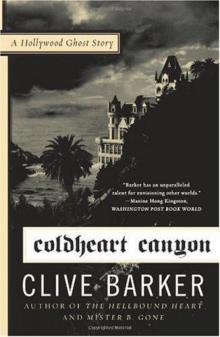 Coldheart Canyon: A Hollywood Ghost Story
Coldheart Canyon: A Hollywood Ghost Story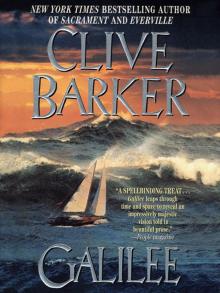 Galilee
Galilee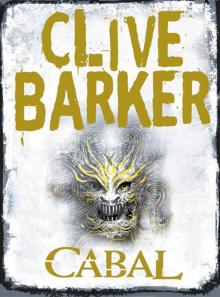 Cabal
Cabal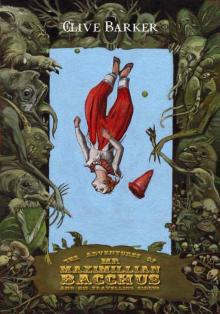 The Adventures of Mr. Maximillian Bacchus and His Travelling Circus
The Adventures of Mr. Maximillian Bacchus and His Travelling Circus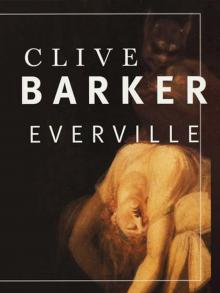 Everville
Everville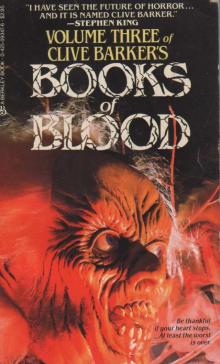 Books of Blood: Volume Three
Books of Blood: Volume Three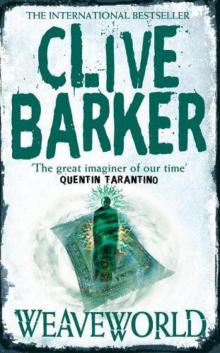 Weaveworld
Weaveworld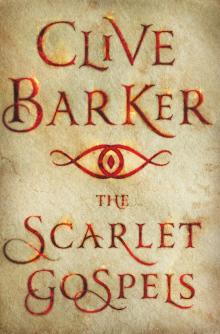 The Scarlet Gospels
The Scarlet Gospels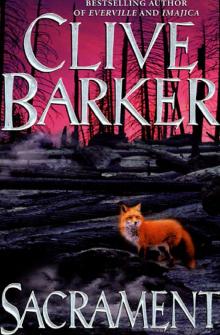 Sacrament
Sacrament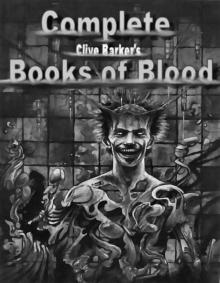 Books of Blood: Volumes 1-6
Books of Blood: Volumes 1-6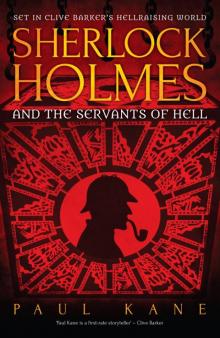 Sherlock Holmes and the Servants of Hell
Sherlock Holmes and the Servants of Hell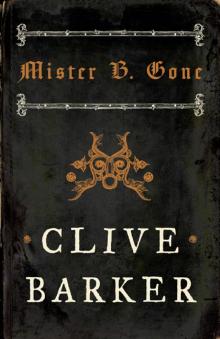 Mister B. Gone
Mister B. Gone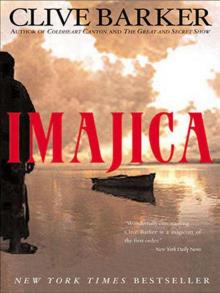 Imajica
Imajica The Reconciliation
The Reconciliation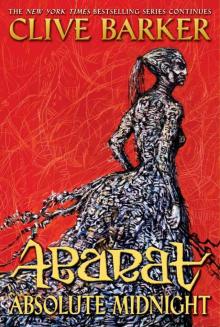 Abarat
Abarat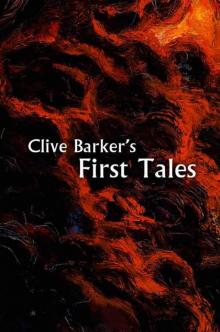 Clive Barker's First Tales
Clive Barker's First Tales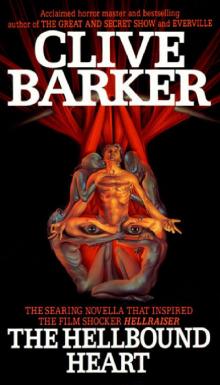 The Hellbound Heart
The Hellbound Heart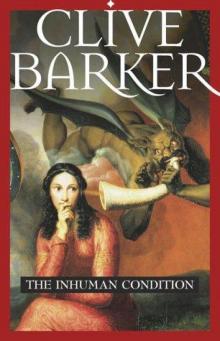 The Inhuman Condition
The Inhuman Condition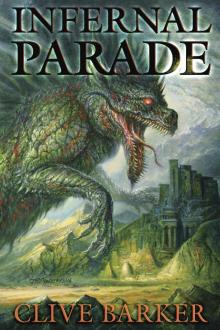 Infernal Parade
Infernal Parade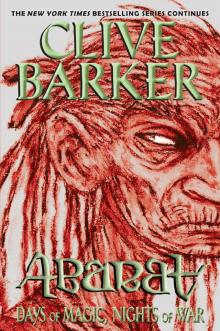 Days of Magic, Nights of War
Days of Magic, Nights of War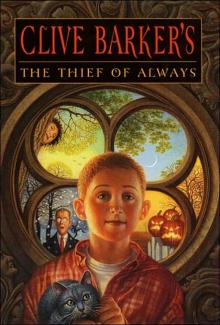 The Thief of Always
The Thief of Always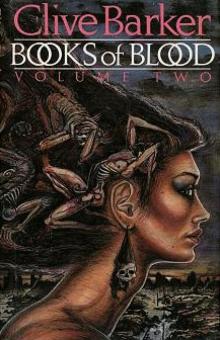 Books of Blood Vol 2
Books of Blood Vol 2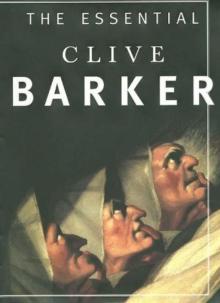 The Essential Clive Barker
The Essential Clive Barker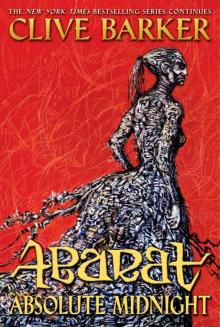 Abarat: Absolute Midnight a-3
Abarat: Absolute Midnight a-3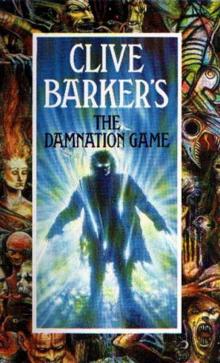 The Damnation Game
The Damnation Game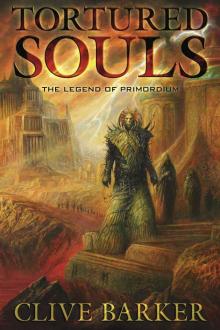 Tortured Souls: The Legend of Primordium
Tortured Souls: The Legend of Primordium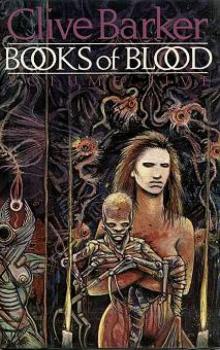 Books of Blood Vol 5
Books of Blood Vol 5 Imajica 02 - The Reconciliator
Imajica 02 - The Reconciliator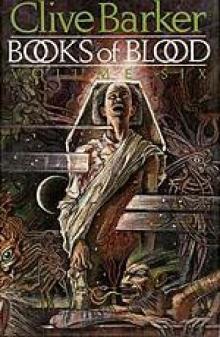 Books Of Blood Vol 6
Books Of Blood Vol 6 Imajica 01 - The Fifth Dominion
Imajica 01 - The Fifth Dominion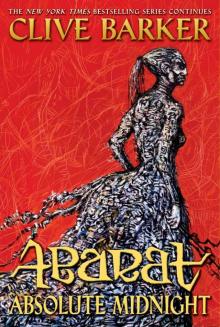 Abarat: Absolute Midnight
Abarat: Absolute Midnight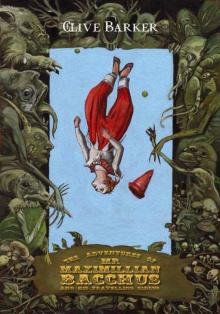 The Adventures of Mr. Maximillian Bacchus & His Traveling Circus
The Adventures of Mr. Maximillian Bacchus & His Traveling Circus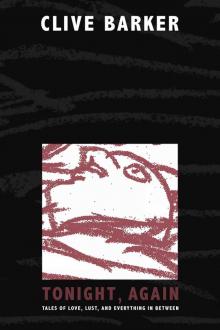 Tonight, Again
Tonight, Again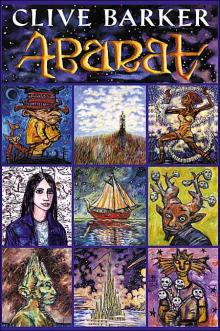 Abarat: The First Book of Hours a-1
Abarat: The First Book of Hours a-1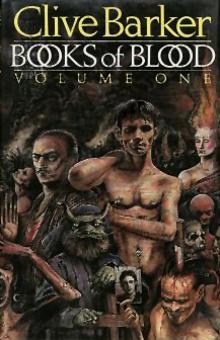 Books Of Blood Vol 1
Books Of Blood Vol 1 Age of Desire
Age of Desire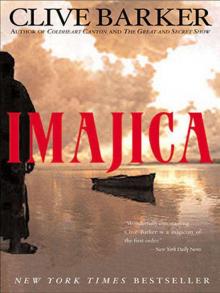 Imajica: Annotated Edition
Imajica: Annotated Edition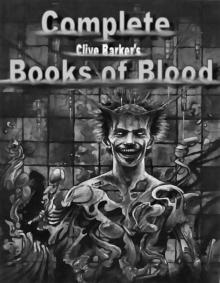 Complete Books of Blood
Complete Books of Blood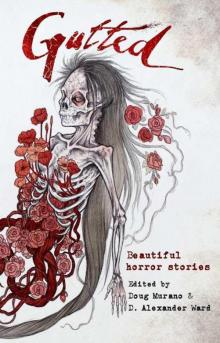 Gutted: Beautiful Horror Stories
Gutted: Beautiful Horror Stories Shivers 7
Shivers 7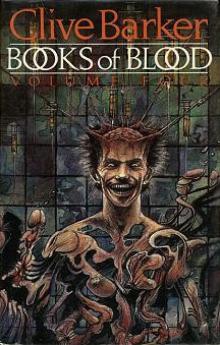 Books Of Blood Vol 4
Books Of Blood Vol 4